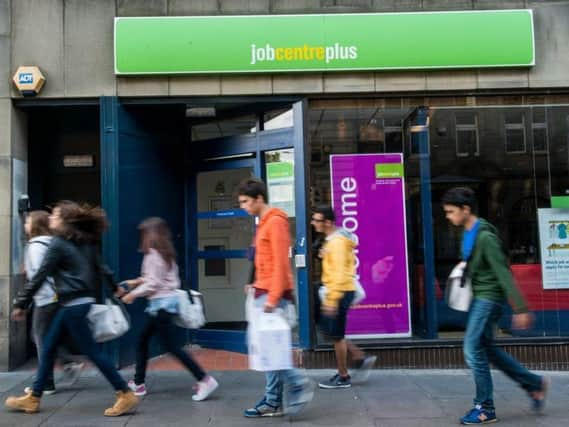One in six unemployed Scots suffering from suicidal thoughts during Covid-19 lockdown


Researchers at the University of Strathclyde, who are conducting a study tracking the mental health risks and impacts of the pandemic, said those who were already out of work at the start of the outbreak were the most “seriously affected.”
In what they described as “disturbing” and “very concerning” evidence, they warned that without “rapid government action” to improve people’s economic security, the situation would further deteriorate.
Advertisement
Hide AdAdvertisement
Hide AdThe most recent unemployment statistics, which cover the period from December 2019 to this February, show that the number of Scots out of work stood at 105,000.
Since mid-March, there have been more than 250,000 claims for Jobseeker’s Allowance and over 20,000 claims for Employment Support Allowance.
The study, which is being led by the Mental Health Foundation, also found that a third of Scottish adults in full-time employment are worried about losing their jobs.
Its survey of more than 2,000 adults, conducted between 23 April and 1 May. showed a third of people are worried about their finances, such as their ability to pay bills or meet debts.
Lee Knilton, director of the Mental Health Foundation Scotland and co-director of the university’ centre for health policy, said the findings of the latest research were alarming.
“Our research is starting to reveal how the financial and employment inequalities caused and exacerbated by the pandemic are affecting people’s mental health,” he explained.
“We have very concerning evidence that hundreds of thousands of people in Scotland are worrying about fundamental financial matters and their job security – both of which are closely linked to poor mental health.
“However, it is also important to recognise that within the overall picture, it is people who were already unemployed at the start of the pandemic who are being most seriously affected.
Advertisement
Hide AdAdvertisement
Hide Ad“It is disturbing that more than one in six people unemployed people surveyed say they have had suicidal thoughts and feelings within the last two weeks.”
He added: “Without further, rapid government action to improve people’s economic security, we can expect things to get worse, especially for the poorest.
“The financial inequalities that lead to increased and unequal rates of mental ill-health will be intensified - and the benefits of recovery and coming out of the lockdown will not be shared equally.”
Professor Alec Morton, head of Strathclyde’s department of management science and the university’s lead adviser on the project, said the research revealed the “scale of the psychological trauma” facing the country.
He went on: “Tragically, much of the pain is being borne by those who were struggling to get by even before the pandemic hit. These findings challenge us as a society to come up with a collective response which is commensurate with the scale of the challenge.”
The study is part of a major UK-wide longitudinal research project called Coronavirus: Mental Health in the Pandemic.
Strathclyde is one of several partners in the study alongside the University of Cambridge and QUeen’s University Belfast.
A message from the Editor:
Thank you for reading this story on our website. While I have your attention, I also have an important request to make of you.
Advertisement
Hide AdAdvertisement
Hide AdWith the coronavirus lockdown having a major impact on many of our advertisers - and consequently the revenue we receive - we are more reliant than ever on you taking out a digital subscription.
Subscribe to scotsman.com and enjoy unlimited access to Scottish news and information online and on our app. With a digital subscription, you can read more than 5 articles, see fewer ads, enjoy faster load times, and get access to exclusive newsletters and content. Visit https://www.scotsman.com/subscriptions now to sign up.
Our journalism costs money and we rely on advertising, print and digital revenues to help to support them. By supporting us, we are able to support you in providing trusted, fact-checked content for this website.
Joy Yates
Editorial Director
Comments
Want to join the conversation? Please or to comment on this article.